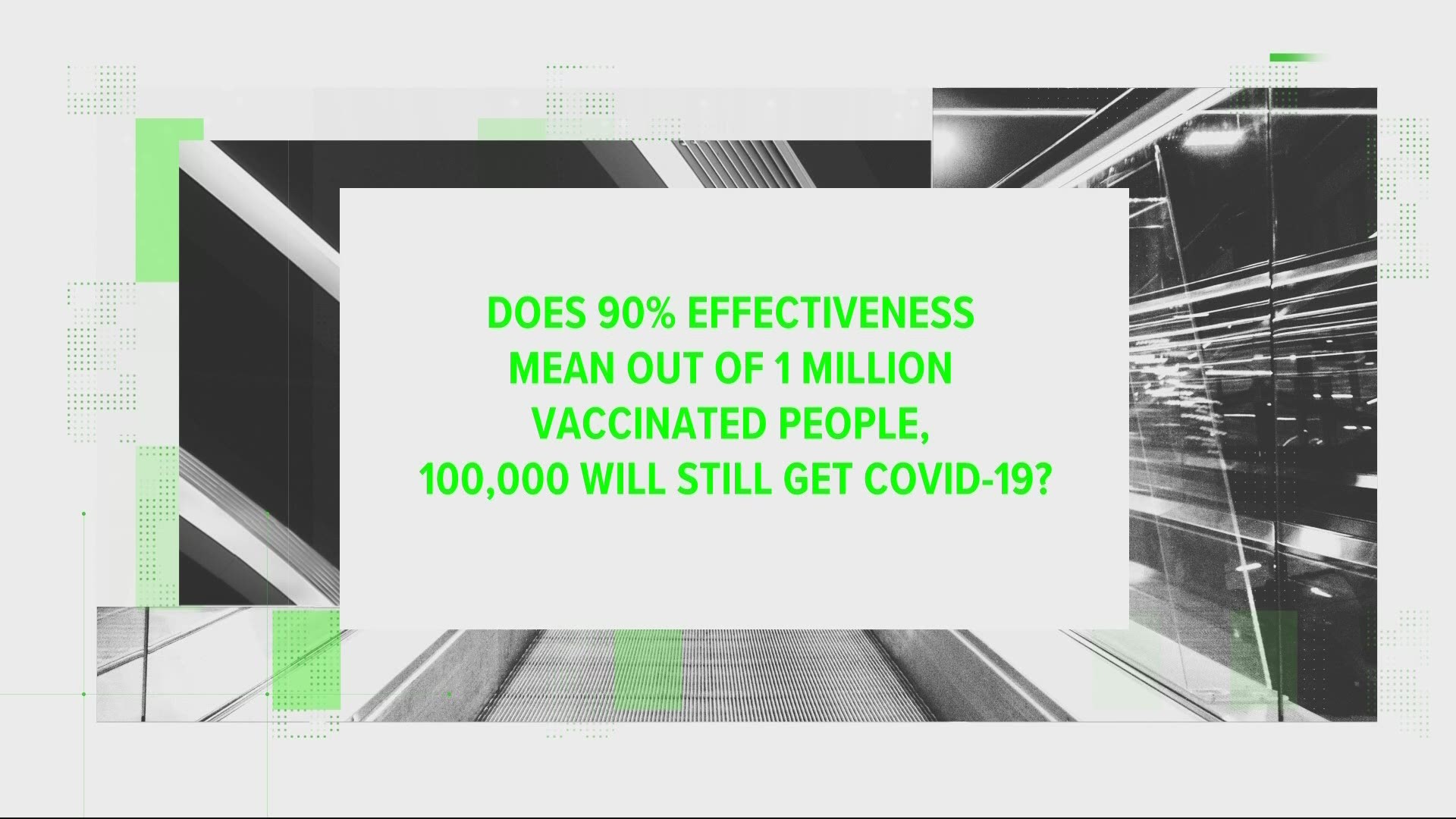CHARLOTTE, N.C. — While the COVID-19 vaccines are highly effective, they are not perfect, and in rare cases, vaccinated people could still get sick.
But just how many people could we expect this to happen to?
A recent real-world study of Pfizer and Moderna vaccines found them to be 90% effective against coronavirus infection. Some have interpreted that to mean out of every ten people who are vaccinated, one will still get infected.
Another iteration of this claim by one news outlet is that "for every million fully vaccinated people who fly, some 100,000 could still become infected."
THE QUESTION
Does 90% vaccine effectiveness mean, out of a million vaccinated people, 100,000 will still get sick?
THE ANSWER
It's not a fair estimation in most real-life scenarios and it's not a fair estimation in the claim's original context of flying.
The Centers for Disease Control and Prevention explains "effectiveness" as a measure of how much a vaccine reduces disease risk compared to an unvaccinated group. Essentially, if a vaccine is 90% effective, that means the vaccinated person's risk is 90% lower than the risk of someone who is unvaccinated. "Efficacy" is a similar concept, but one applied to clinical trials, rather than real-world studies.
The 100,000-infected-out-of-one-million-vaccinated scenario is based on the assumption that every single unvaccinated person who flies gets COVID-19.
Common sense would show that is not happening, and several case studies on COVID-19 transmission on planes have found, even on flights where COVID-positive people were on board, transmission was limited and certainly not 100%.
Have a relative or friend in another state and want to know when they can get vaccinated? Visit NBC News' Plan Your Vaccine site to find out about each state's vaccine rollout plan.

